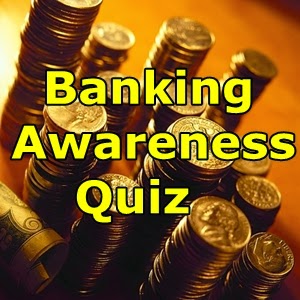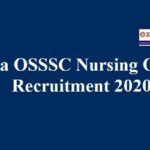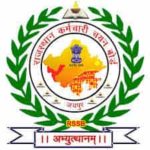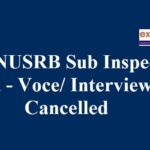(a) Asset Liability Management
(b) Asset Liability Maturity
(c) Asset Liability Mismatch
(d) Asset Liability Manpower
(e) None of these
2. Open Market
operation of RBI refers to ____ ?
operation of RBI refers to ____ ?
(a) Auctioning of Treasury Bills
(b) Purchasing of goods
(c) Trading in shares
(d) Buying and selling of securities
(e) None of these
3. M1 , M2 , M3 , and
M4 is used to measure _____ ?
M4 is used to measure _____ ?
(a) Balance of payment
(b) Unemployment
(c) Money supply
(d) Industrial production
(e) None of these
4. Small loans
provided by the Banks to very poor families without any collateral security is
popularly known as ____?
provided by the Banks to very poor families without any collateral security is
popularly known as ____?
(a) Micro finance
(b) Project finance
(c) Macro finance
(d) Personal finance
(e) None of these
5. Which of the
following in not the part of the scheduled banking structure in India?
following in not the part of the scheduled banking structure in India?
(a) Private sector bank
(b) Public sector banks
(c) Money lenders
(d) RRB
(e) None of these
6. An account in
which trading of shares in their electronic form is done is known as ______ ?
which trading of shares in their electronic form is done is known as ______ ?
(a) NRI Account
(b) NRIO Account
(c) Current Account
(d) Demat Account
(e) None of these
7. The Govt approved
sale of what quantity of wheat from FCI stock in the open market in order to
boost domestic supply and check
prices?
sale of what quantity of wheat from FCI stock in the open market in order to
boost domestic supply and check
prices?
(a) 5 mn tonne
(b) 8 mn tonne
(c) 10 mn tonne
(d) 12 mn tonne
(e) None of these
8. Which of the
following is the depositories in India handling dematerialized shares?
following is the depositories in India handling dematerialized shares?
(a) Bombay stock exchange
(b) National payment corporation of India
(c) Central depository services limited
(d) Both 2 and 3
(e) None of these
9. Which of the
following is not part of priority sector?
following is not part of priority sector?
(a) Residence loan
(b) Animal husbandry
(c) RRB
(d) Private sector bank
(e) None of these
10. Poverty in India
has been defined in terms of ______?
has been defined in terms of ______?
(a) Income of the family
(b) Calorie intake
(c) Standard of living of the people
(d) Number of members in a family
(e) None of these
11. In which type of
accounts bank generally don’t pay interest?
accounts bank generally don’t pay interest?
(a) Current Account
(b) F. D. Account
(c) Saving Account
(d) All of the above
(e) None of these
12. The primary
policy technique employed by the RBI is ______?
policy technique employed by the RBI is ______?
(a) Margin requirements
(b) Reserve requirements
(c) Open market operation
(d) Discount Policy
(e) None of these
13. The Economic
survey is compiled by the ____
survey is compiled by the ____
(a) Central Board of Direct Taxes
(b) Ministry of Home Affairs
(c) Ministry of Rural Development
(d) Ministry of Finance
(e) None of these
14. Which of the
following not a part of the World Bank?
following not a part of the World Bank?
(a) MIGA
(b) ADB
(c) IBRD
(d) IFC
(e) None of these
15. “Open market
operation” are controlled by ____
operation” are controlled by ____
(a) RBI
(b) Finance Ministry
(c) Central Board of Direct Tax
(d) World bank
(e) None of these
16. Which of the
following is a source of Non-tax revenue for Government of India?
following is a source of Non-tax revenue for Government of India?
(a) Entrance fee on museums
(b) Excise duty on beverages
(c) Import duty on cars
(d) Both 2 and 3
(e) None of these
17. Which of the
following is generally referred to as a ‘Broader’ measures of money supply?
following is generally referred to as a ‘Broader’ measures of money supply?
(a) M0
(b) M4
(c) M1
(d) M3
(e) None of these
18. Which of the
following is not a source of Funds of a commercial bank?
following is not a source of Funds of a commercial bank?
(a) Call money borrowings
(b) Capital
(c) Deposits
(d) Borrowings from RBI
(e) None of these
19. The price at
which Govt. purchases food grain for maintaining the public distribution system
is known as ______.
which Govt. purchases food grain for maintaining the public distribution system
is known as ______.
(a) Minimum Price
(b) Ceiling prices
(c) Distribution price
(d) Procurement price
(e) None of these
20. Currency swap is
an instrument to manage ______?
an instrument to manage ______?
(a) Interest rate risk
(b) Cash flows in different currency
(c) Currency risk
(d) Interest rate and currency risk
(e) None of these
Books For 2015 Banking/Insurance Exams
This post was last modified on November 27, 2017 9:02 am





